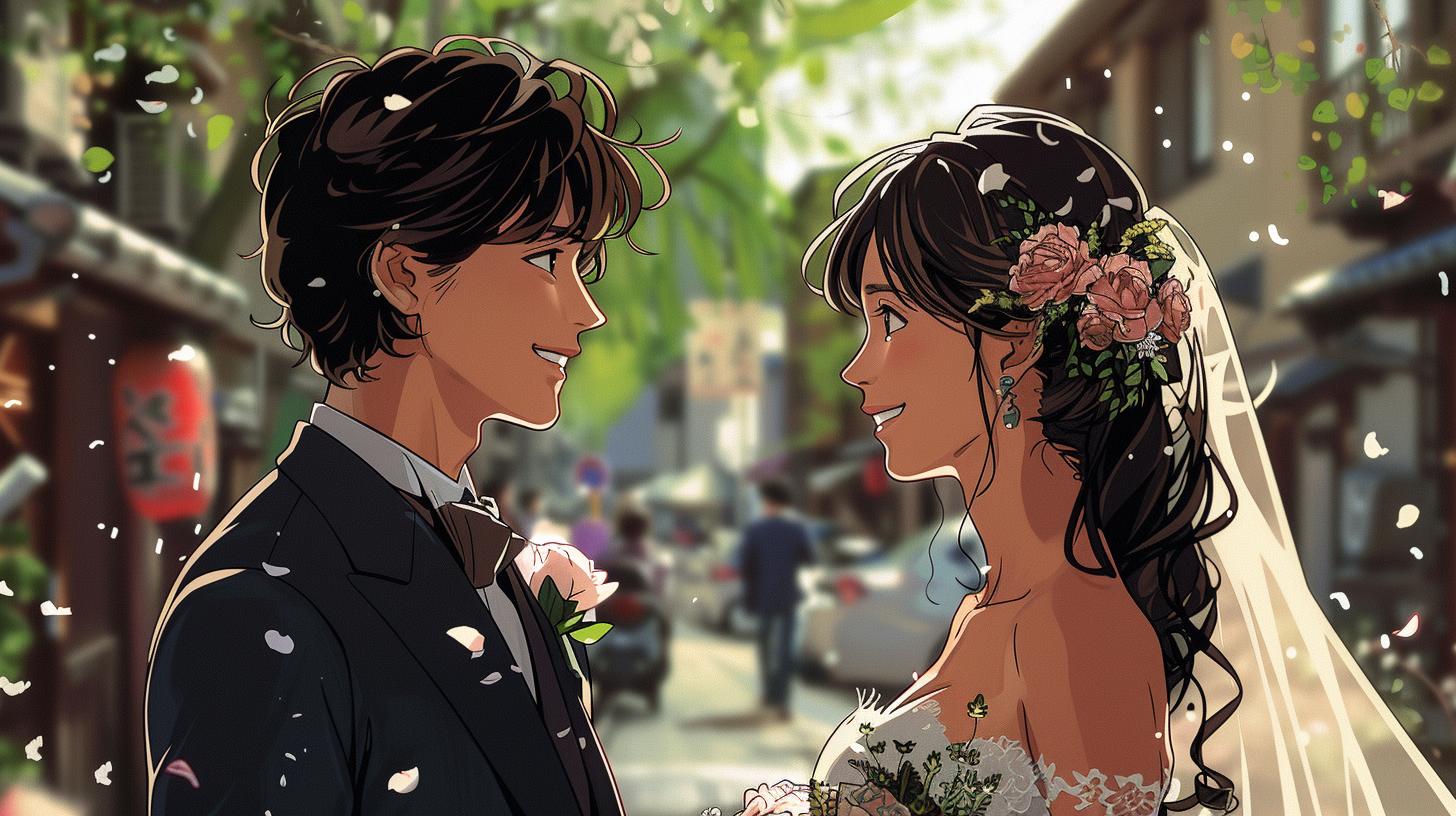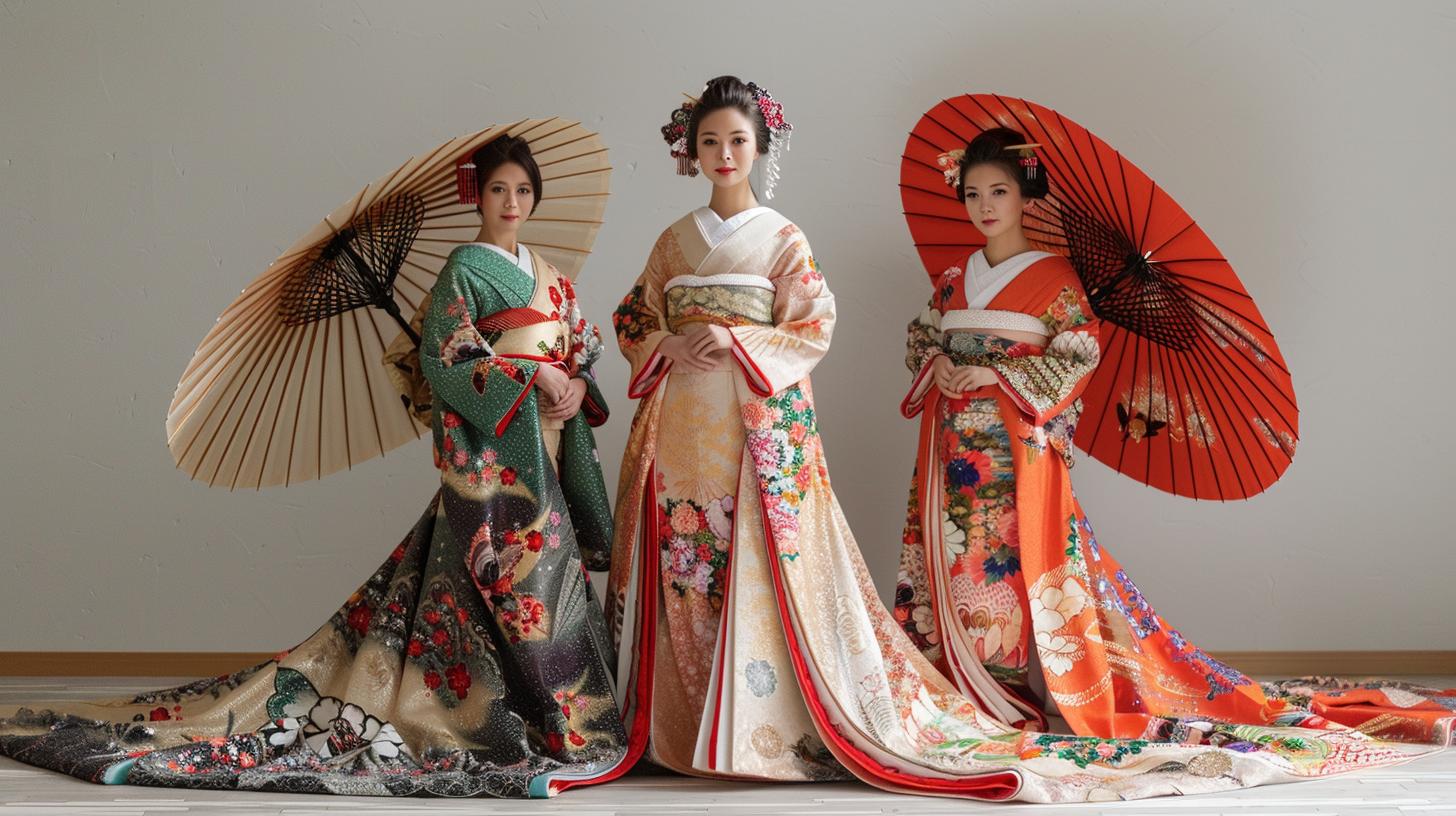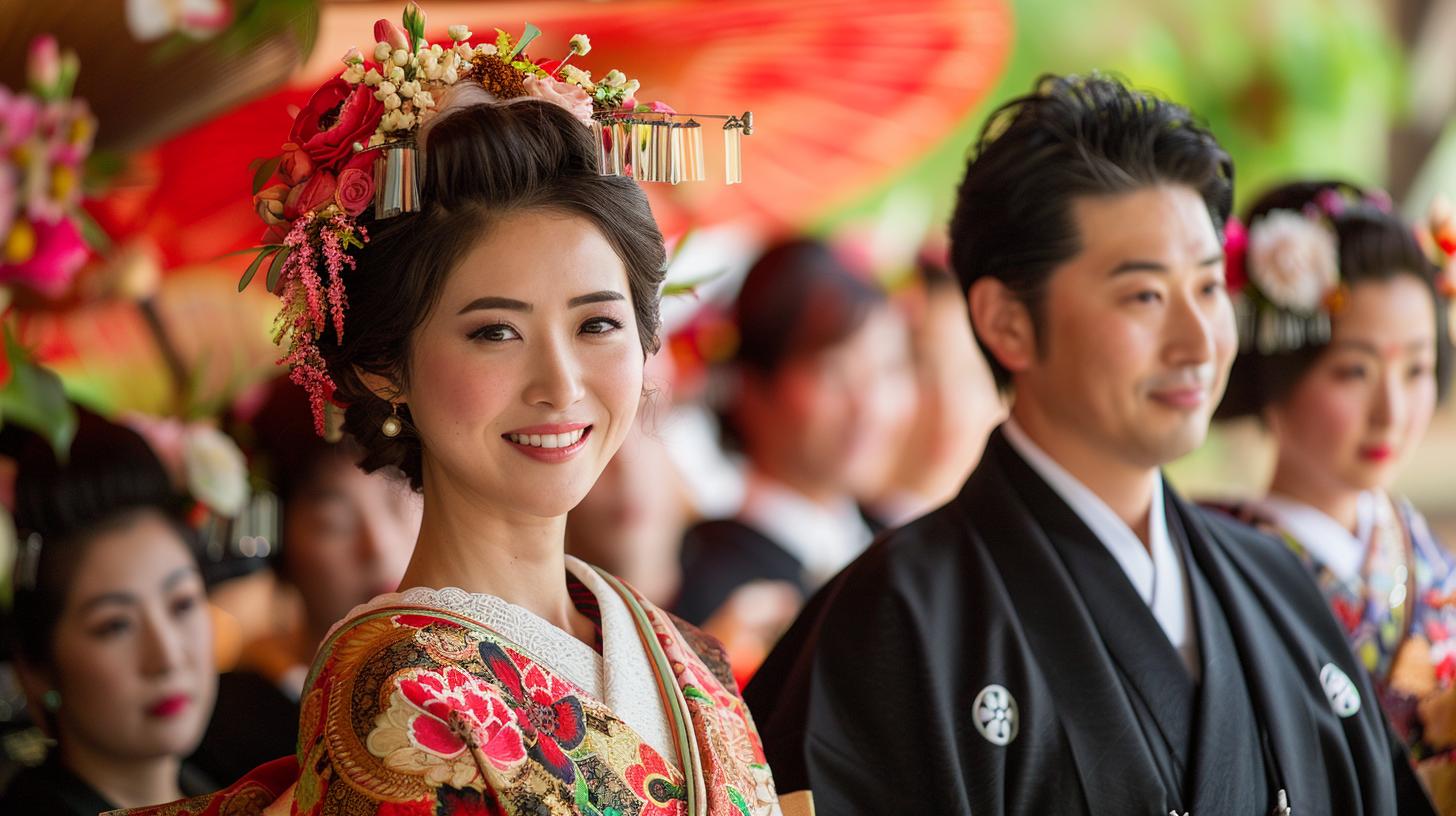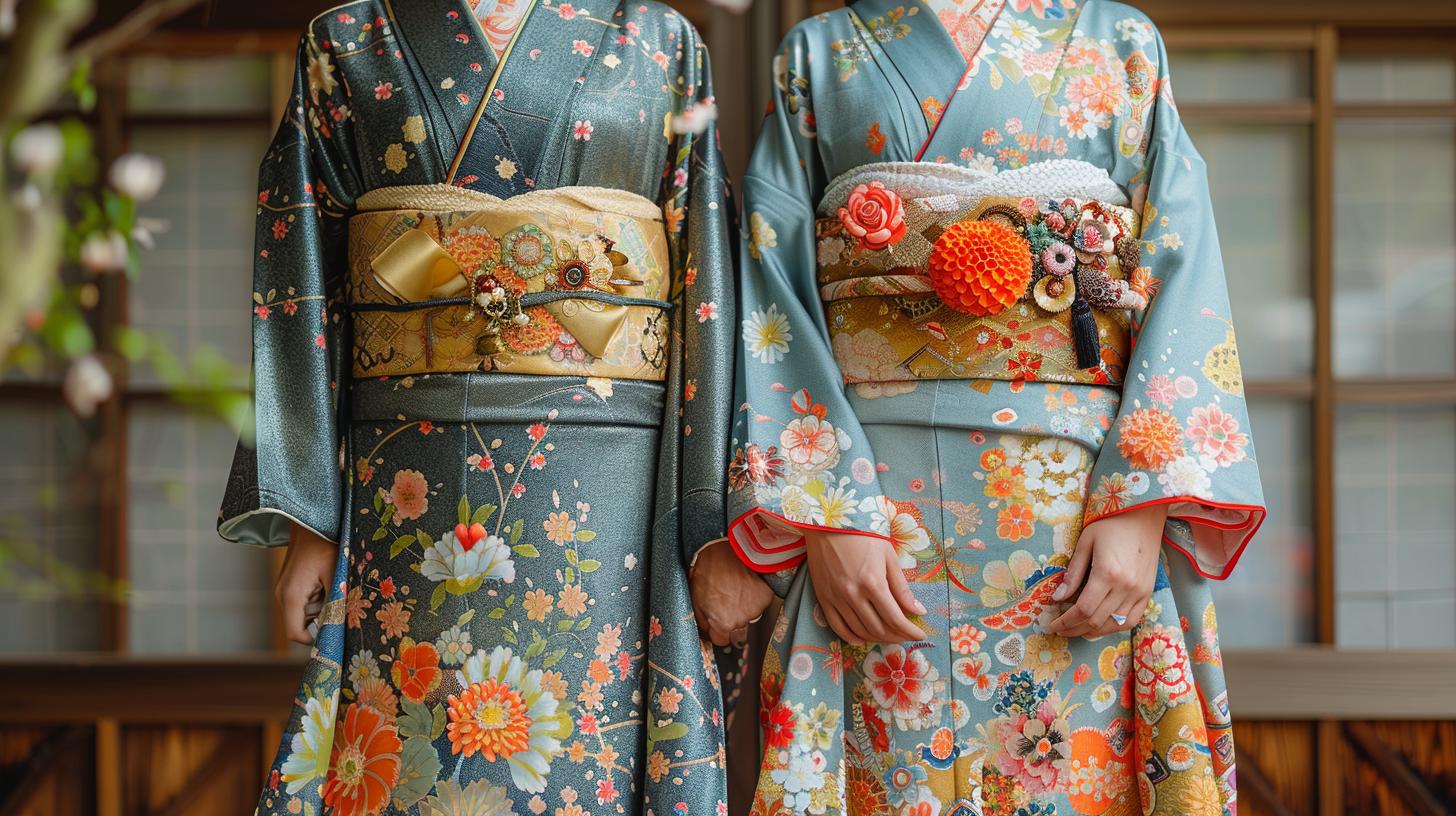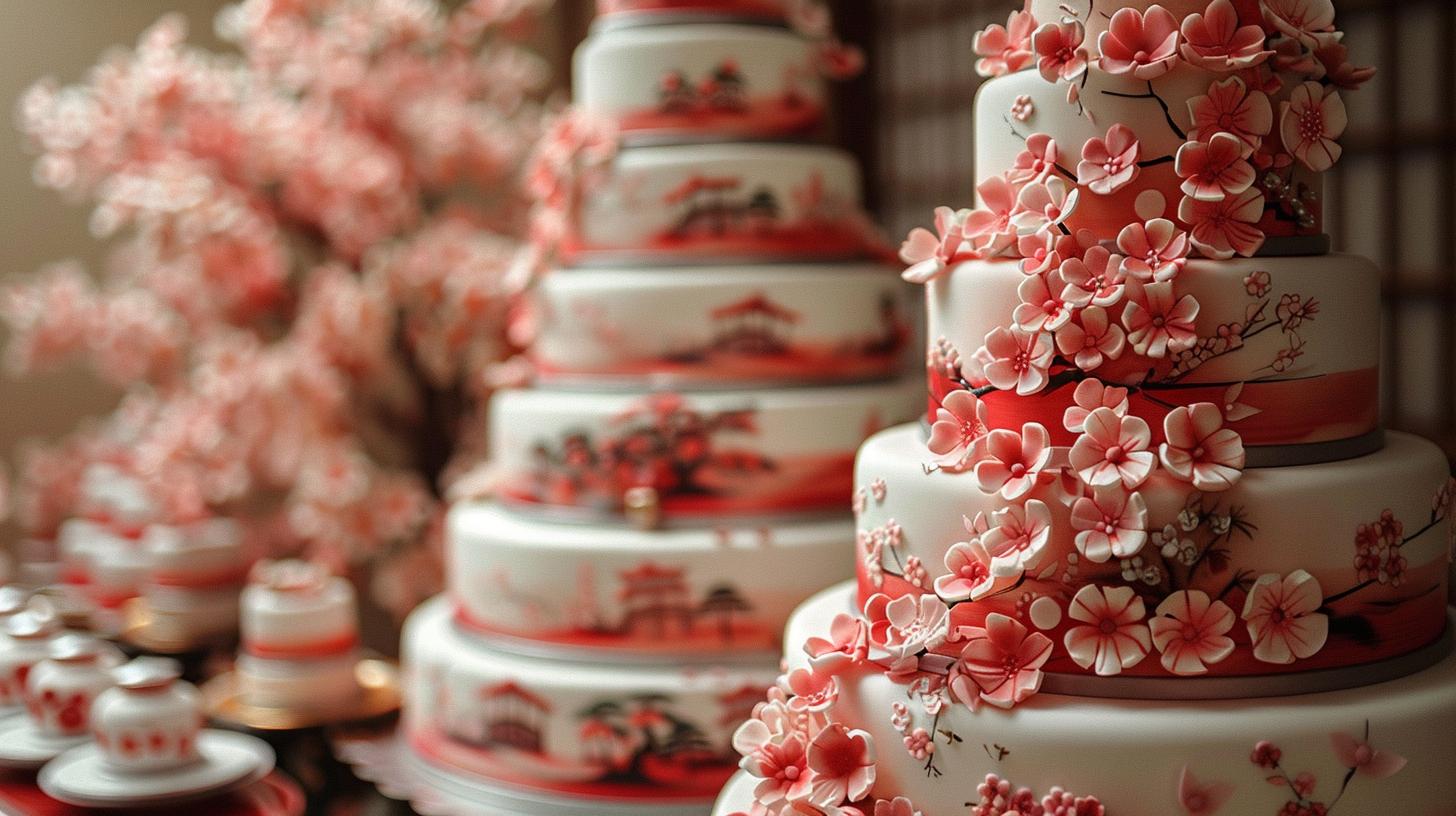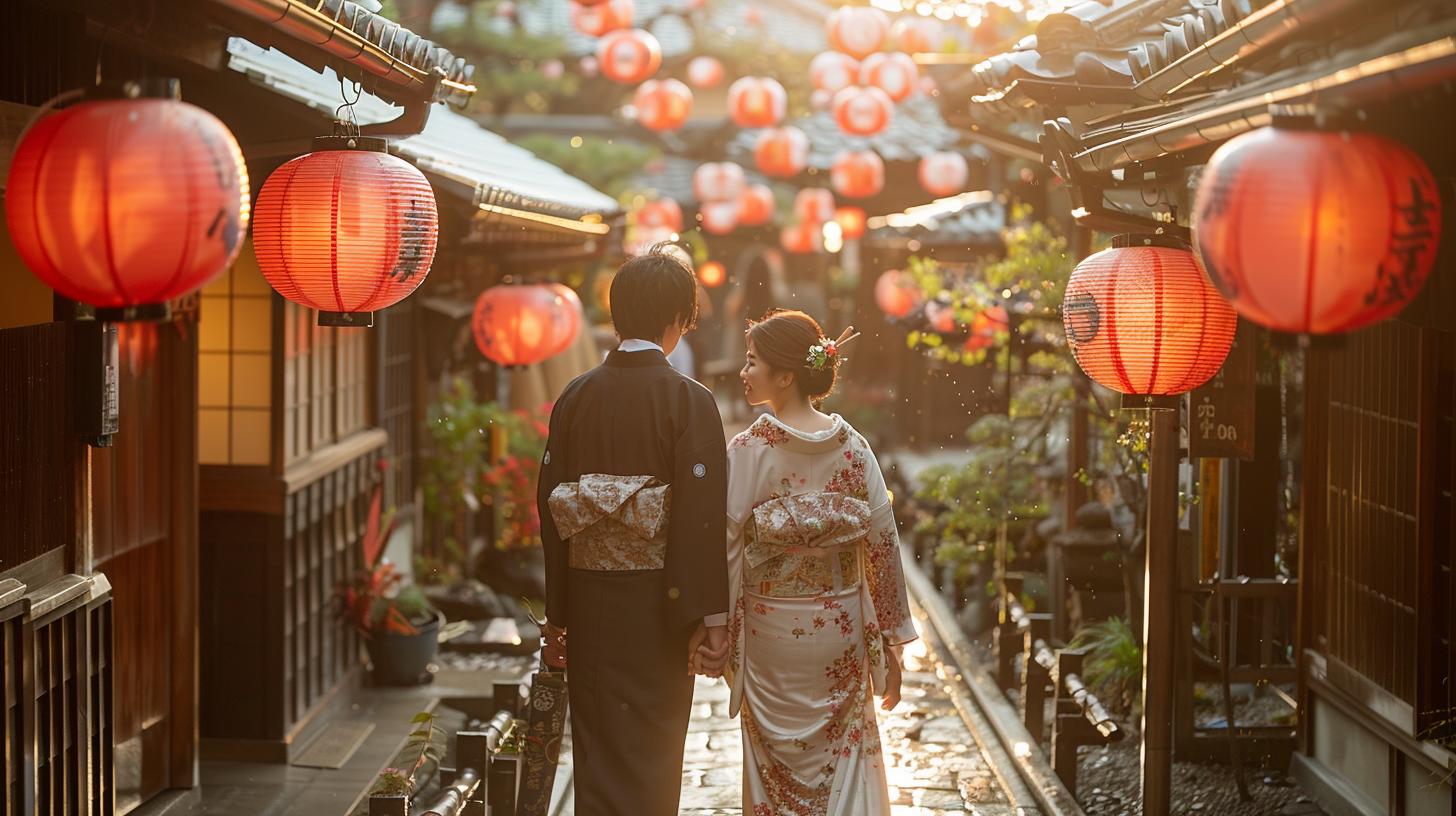How Is The Typical Japanese Wedding Blending Tradition and Modernity
Japanese weddings blend traditional customs with modern influences, creating unique and significant events. From the ceremonial betrothal to the sake exchange ritual, each aspect reflects Japan’s rich cultural heritage.
Planning the date, choosing attire, and observing reception etiquette are key in preparing for this special day. Guests are expected to give cash gifts (goshugi) and receive favors from the couple, all within the fusion of Japanese and Western wedding styles.
Understanding Japanese Wedding Traditions
Japanese weddings are a harmonious blend of tradition and modernity, incorporating elements that reflect the rich cultural heritage of Japan. The ceremonies are influenced by both ancient customs and contemporary practices, resulting in unique and meaningful celebrations.
Traditional Elements in Japanese Weddings
Traditional Japanese weddings are characterized by symbolic rituals that have been passed down through generations. These include the exchange of symbolic gifts during the betrothal ceremony, the sake exchange ritual, and other traditional customs that add depth and significance to the wedding.
Modern Influences on Japanese Wedding Ceremonies
While traditional elements remain central to Japanese weddings, modern influences have also shaped the way ceremonies are conducted. Many couples now opt for Western-style ceremonies or incorporate contemporary aspects into their wedding day, creating a fusion of old and new traditions.
Significance of Shintoism in Weddings
Shintoism plays a significant role in Japanese weddings, with many ceremonies taking place at Shinto shrines. The rituals performed during these ceremonies, such as purification and offerings to the gods, highlight the spiritual and cultural significance of Shintoism in Japanese wedding traditions.
Preparing for a Japanese Wedding
Planning the Wedding Date
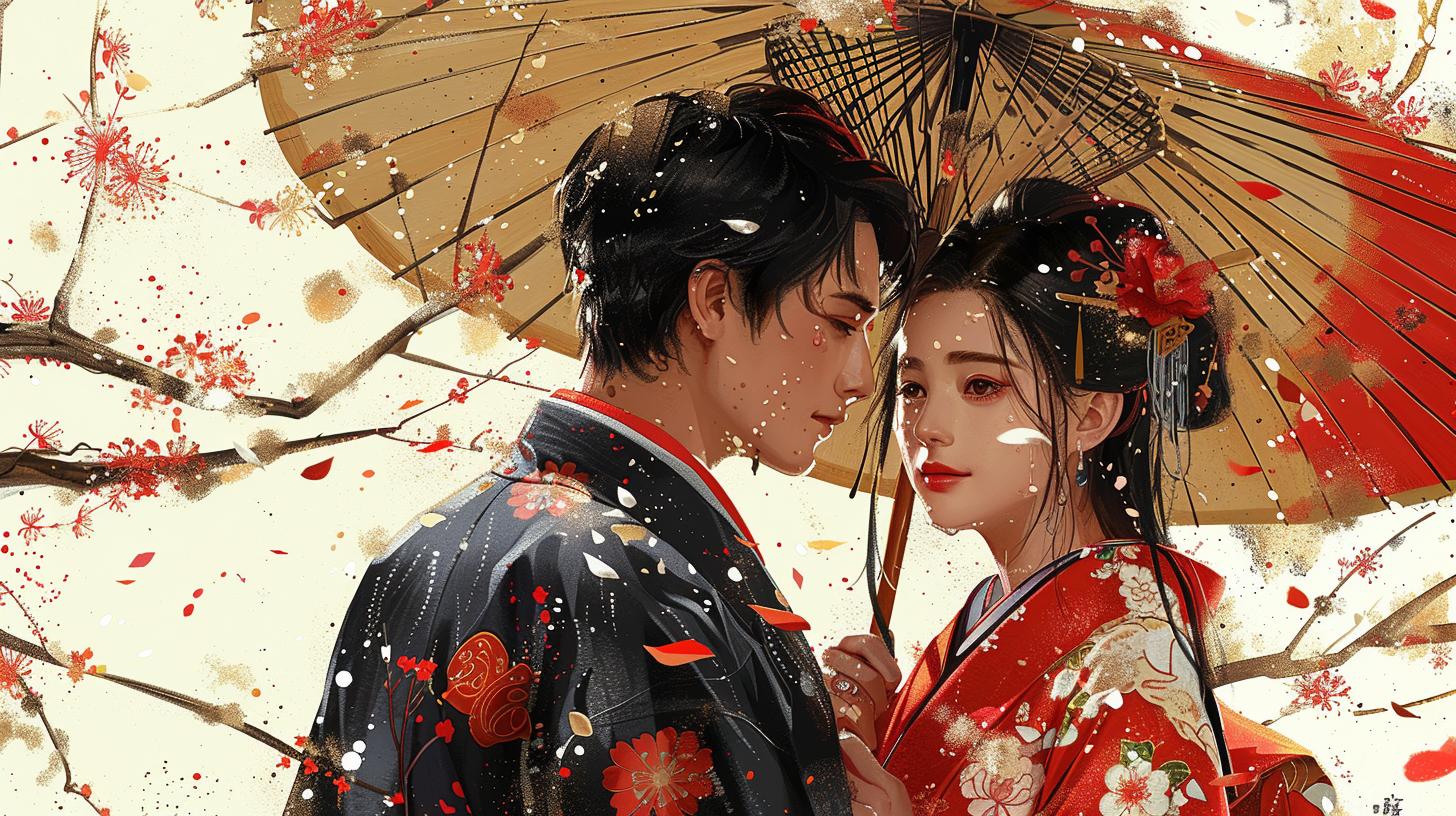
One of the crucial aspects of preparing for a Japanese wedding is selecting an auspicious date. Couples often consult the rokuyo calendar to find a fortunate day for their special occasion.
Choosing a date that aligns with Japanese traditions ensures a harmonious and prosperous start to their marriage.
Choosing the Wedding Attire
Deciding on the wedding attire is a significant part of wedding preparations. Brides typically wear a combination of traditional kimonos and Western-style white wedding dresses, depending on the style of the ceremony.
Grooms, on the other hand, opt for a five-layered kimono, showcasing the fusion of Japanese and Western fashion.
Inviting Guests and Sending Gifts
Inviting guests and sending gifts are essential customs in Japanese weddings. Families meticulously prepare the guest list, ensuring that close relatives and friends are included. Guests are expected to give monetary gifts (goshugi) to the couple as a token of good luck and prosperity.
In return, the newlyweds express their gratitude by providing gifts to their attendees.
The Wedding Ceremony: Customs and Rites
Japanese wedding ceremonies are steeped in tradition and rich symbolism. Each ritual has its own significance, reflecting the cultural heritage of Japan and the sacred union of marriage.
The Betrothal Ceremony
In the betrothal ceremony, families exchange symbolic gifts and offerings to signify the joining of two families.
This tradition dates back centuries and is a cherished part of Japanese weddings.
The Sake Exchange Ritual
Central to Japanese wedding ceremonies is the sake exchange ritual, where the bride and groom, along with their families, partake in drinking sacred sake from ceremonial cups. This ritual symbolizes unity and the sharing of joy.
Symbolic Gestures and Traditions
Throughout the wedding ceremony, various symbolic gestures and traditions are observed. From the purification rituals to the exchange of vows and rings, each element carries deep meaning and spiritual significance.
Wedding Reception Etiquette
When attending a Japanese wedding reception, it’s essential to understand the cultural norms that guide the event.
From seating arrangements to gift-giving protocols, guests are expected to show respect and follow traditional customs throughout the celebration. Being aware of these etiquette rules can help ensure a smooth and enjoyable experience for everyone involved.
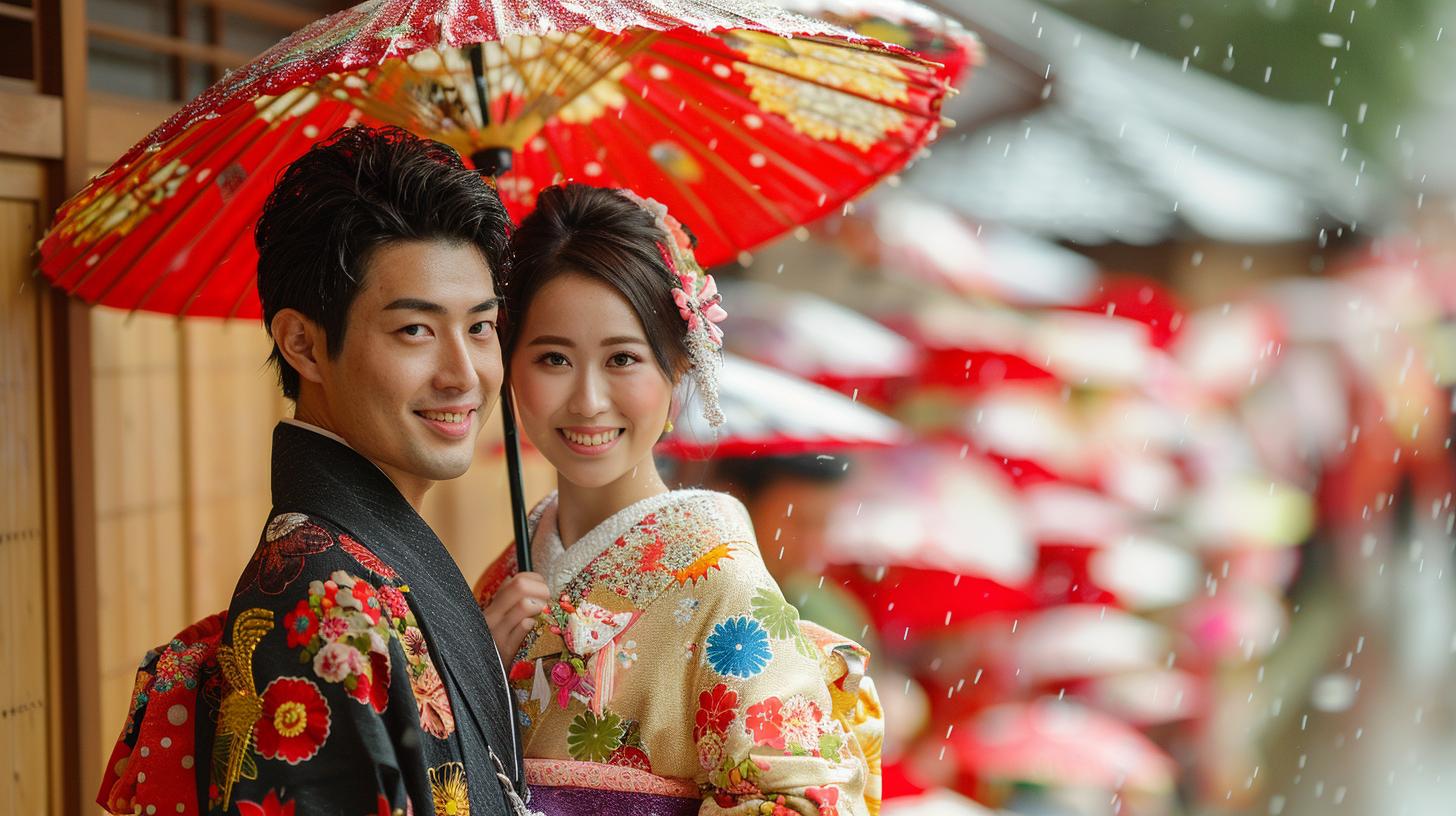
Cultural Norms at Japanese Wedding Receptions
- Guest Seating: Guests are typically assigned seats at tables based on their relationship to the couple. Seating charts are carefully arranged to ensure harmony and respect among attendees.
- Formal Attire: Dressing appropriately for the occasion is important.
Guests are expected to wear formal attire, such as suits or elegant dresses, to show reverence for the newlyweds.
- Speeches and Toasts: During the reception, it is common for family members and friends to give speeches and offer toasts to honor the couple.
These messages are heartfelt expressions of love and well-wishes.
Traditional Elements in Wedding Celebrations
Japanese wedding receptions often feature traditional elements that add meaning and symbolism to the event. From ceremonial rituals to customary dances, these practices embody the cultural heritage of Japan and create a sense of unity and joy among guests.
Tea Ceremony:
One traditional gesture that may take place during the reception is the tea ceremony. The bride and groom may serve tea to their parents as a symbol of gratitude and respect for their support and guidance.
Dance Performances:
Dance performances, such as the ‘Bon Odori’ dance, are sometimes included in Japanese wedding receptions. These energetic and colorful dances celebrate happiness and bring good luck to the newlyweds.
Expectations for Guests and Newlyweds
- Gift Giving: Guests are expected to present monetary gifts (goshugi) to the couple as a symbol of their best wishes for a prosperous future.
These offerings are typically presented in special envelopes and handed to designated gift attendants.
- Receiving Favors: In return, the newlyweds often provide guests with small gifts or tokens of appreciation to express their gratitude for their presence and support on this special day.
- Thank-You Notes: Following the wedding reception, it is customary for the couple to send thank-you notes to all attendees as a gesture of appreciation for their participation and well-wishes.
Bridging Tradition and Modernity
When it comes to Japanese weddings, there is a beautiful fusion of traditional customs with modern influences.
This balance between the old and the new creates a captivating atmosphere for the celebration of love and union.
Fusion of Japanese and Western Wedding Styles
The fusion of Japanese and Western wedding styles is evident in the attire, ceremonies, and overall presentation of the event. It is fascinating to witness how these two distinct cultures come together harmoniously to create a unique wedding experience.
Evolving Trends in Japanese Wedding Culture
Japanese wedding culture continues to evolve as trends change over time. From the choice of venues to the incorporation of new rituals, the landscape of Japanese weddings is dynamic and ever-changing, reflecting the influence of modern society.
Keeping Cultural Heritage Alive in Contemporary Weddings
While modernity plays a significant role in shaping Japanese weddings today, it is essential to keep cultural heritage alive in these contemporary celebrations. Through the preservation of traditional customs and rituals, couples can honor their heritage and pass down these timeless traditions to future generations.
.

